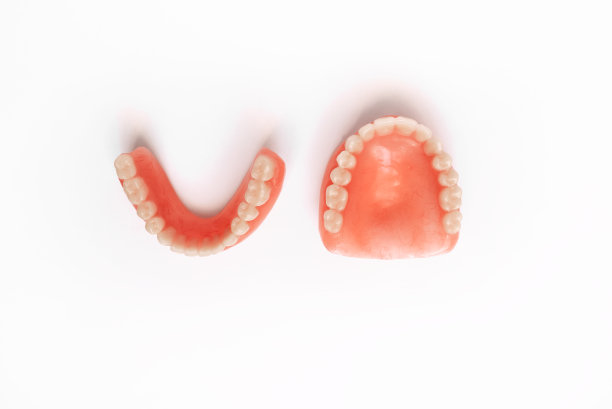Summary: Dental fillings are a common procedure to treat cavities and restore oral health. However, patients must be well-prepared before the appointment and follow specific aftercare guidelines to ensure optimal results. This article outlines essential guidelines that cover pre-appointment preparations, post-filling care, dietary recommendations, and ongoing oral hygiene practices. By adhering to these guidelines, patients can reduce discomfort, enhance healing, and maintain their dental health effectively. Understanding these aspects is crucial for anyone considering or having undergone a dental filling, ensuring their experience is as smooth and beneficial as possible.
1. Pre-Appointment Preparations for Dental Fillings

Before heading to the dentist for a filling, it is crucial to understand what to expect and how to prepare. Firstly, make sure that you share your complete medical history with the dentist, including any allergies and medications you are currently taking. This information will assist in avoiding any adverse reactions during the procedure.
Additionally, consider arranging transportation if you anticipate needing sedation. Some fillings may require local anesthesia or sedation to ensure your comfort, and having someone drive you home is advisable post-treatment.
Lastly, maintain good oral hygiene leading up to your appointment. Brush and floss your teeth thoroughly to minimize the bacteria present in your mouth, which can preemptively reduce the risk of infection during the filling procedure.
2. Aftercare Guidelines Following a Dental Filling
After receiving a dental filling, initial care is essential for reducing discomfort and ensuring proper healing. One immediate step is to avoid biting or chewing on the filled tooth until the anesthesia has completely worn off. This precaution prevents unintentional biting of your cheek or tongue.
In the days following the filling, it is common to experience slight sensitivity. If you notice heightened sensitivity to hot or cold, use desensitizing toothpaste and avoid extremely hot or cold foods and drinks for some time.
Furthermore, ensure to follow up with your dentist if any abnormalities occur, such as persistent pain or discomfort. Early intervention can address any potential complications effectively. A follow-up visit may be necessary to assess the fillings integrity.
3. Dietary Recommendations After a Filling Procedure
Diet plays a crucial role in recovery after getting a dental filling. It is best to avoid hard, crunchy, and sticky foods for at least 24 hours post-procedure as they can put unnecessary pressure on the newly filled tooth. Foods like popcorn, hard candies, and gum should be temporarily eliminated from your diet to ensure a smooth recovery.
Opt instead for softer options that are easier to chew, such as yogurt, pudding, or mashed potatoes. These foods will not only be gentle on the filling but also help in maintaining overall oral comfort during the healing process.
Additionally, staying hydrated is essential. Adding lukewarm water to your diet helps maintain optimal oral moisture and supports healing. Avoidance of extremely hot or cold beverages can also protect sensitive areas after the filling.
4. Ongoing Oral Hygiene Practices for Long-Term Health
After getting a dental filling, maintaining an excellent oral hygiene routine becomes even more crucial. Brush your teeth at least twice a day with fluoride toothpaste, focusing on the area where the filling is located. This helps protect the tooth and prevents any further decay.
Flossing daily is equally important. It ensures that food particles and plaque do not accumulate around the filling and between teeth, reducing the risk of cavities and gum disease.
Regular dental check-ups are vital for monitoring the condition of your fillings. During these visits, your dentist can assess the integrity of the filling, check for any signs of decay, and clean your teeth professionally, helping maintain your overall oral health.
Summary:
In summary, effective preparation before getting a dental filling and diligent aftercare is essential for optimal oral health. Following the recommendations outlined鈥攆rom pre-appointment checks to dietary adjustments and ongoing care鈥攚ill help ensure the filling heals correctly and minimizes complications.
Ultimately, being proactive in your oral care can lead to long-lasting dental wellness and a brighter smile.
This article is compiled by Vickong Dental and the content is for reference only.
Vickong Dental
Vickong Dental is a large medical group established in Hong Kong in 2008 by professors from well-known medical universities in Guangdong and Hong Kong, as well as medical doctors from key national '985' universities (including Master's supervisors and senior professors). The chain of branches brings together expert dentists with PhDs and Master's degrees from Hong Kong and Mainland China, committed to providing high-quality dental treatment.
"Vickong Dental Practices the University Motto of 'Healing and Serving Society,' with a Stable Operation for Sixteen Years. It Has Been honored with Hong Kong Enterprise Leaders's Choice,' and is a Global Trusted Implant Center for the Nobel Implant System. Recommended by Hong Kong Metro Broadcast and Guangdong Television, it Serves Customers from Over Thirty Countries and Regions, Gaining the Trust and Favor of Citizens from the Guangdong-Hong Kong-Macau Greater Bay Area and Surrounding Cities.

Thousands of customers' unanimous praise
The most recognized and highly recommended dental service by customers in the Guangdong-Hong Kong-Macau Greater Bay Area
We Ensure You Receive Detailed Care and Attention Here
Hong Kong standards, Shenzhen prices, Your Trusted English-speaking dentists

Vickong Dental Medical-Grade Instrument Disinfection Process
Vickong Dental Medical-Grade Instrument Disinfection Process

Vickong Dental Chain: A Warm and Comfortable Environment for Treatment






Appointment Hours

Q&A
Why choose Vickong Dental?
Vickong Dental practices the university motto 「Medicine to Benefit Society」, with each branch bringing together highly qualified dentists with doctoral and master’s degrees from Hong Kong and the Mainland, and has maintained seventeen years of steady operation。Recipient of 「2024 Hong Kong Enterprise Leaders Brand」, 「2025 Hong Kong Enterprise Leaders Brand」, a Nobel Biocare Global Trusted Implant Center, and a brand recommended by Metro Radio Hong Kong and Guangdong TV。
To date, we have served customers from more than thirty countries and regions,earning exceptionally high word-of-mouth recognition and trusted recommendations from residents across the Guangdong-Hong Kong-Macao Greater Bay Area and surrounding cities
We have eight major branches in Zhuhai、Shenzhen,and a consultation and service assurance center in Hong Kong,so you can book a free consultation at any time for any questions,which is very reassuring.
If I do not accept the quotation after the CT scan, will I be charged??
No! As long as the actual treatment has not started, you will not be charged any fees.
Will there be any additional charges during the treatment process?
No, there won’t be any additional charges. Before treatment begins, we will clearly explain the treatment plan and its corresponding fees. Only after the patient agrees and signs the consent form will we proceed with the dental service.
Can I pay in Hong Kong dollars?
Yes. Vickong Dental accepts payment in Hong Kong dollars. The amount will be converted based on the exchange rate of the day, and the applicable rate will be clearly communicated to you in advance.
Can I reschedule my appointment at any time?
Yes. Please contact us via **WeChat** or **WhatsApp** as early as possible, providing your original appointment time and details, along with your preferred new date and time slot for rescheduling.













